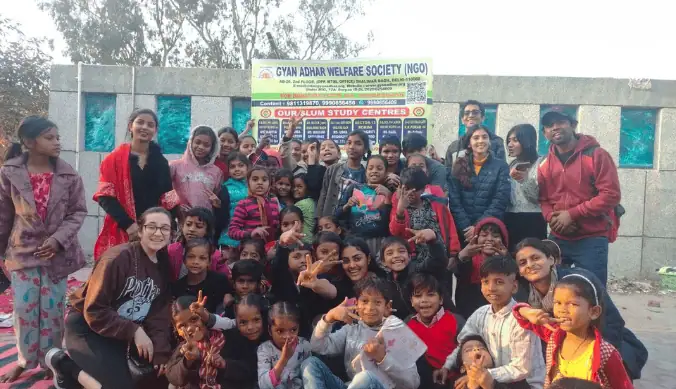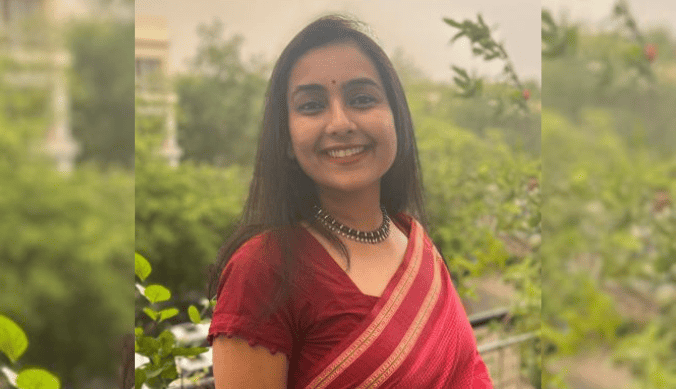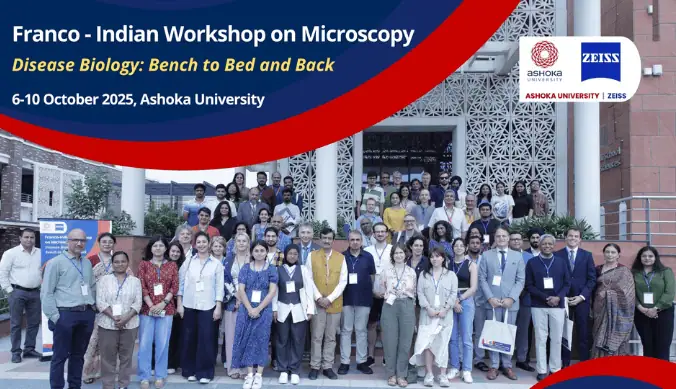ICPP Hosts Inaugural Annual Growth Conference 2025
Leading policymakers and experts, including NK Singh, Chairman of the 15th Finance Commission; Dr V Anantha Nageswaran, Chief Economic Advisor, Government of India and Suman Bery, Vice Chairman, Niti Aayog, deliberated on economic growth priorities.
The Isaac Centre for Public Policy (ICPP) at Ashoka University hosted its inaugural Annual Growth Conference 2025 at the Taj Mahal Hotel, New Delhi, on May 2-3, 2025. Centred on India’s medium-term growth and development trajectory, the conference convened eminent policymakers, economists, regulators, and thought leaders to engage in substantive policy dialogues on key issues critical to the nation’s economic development.
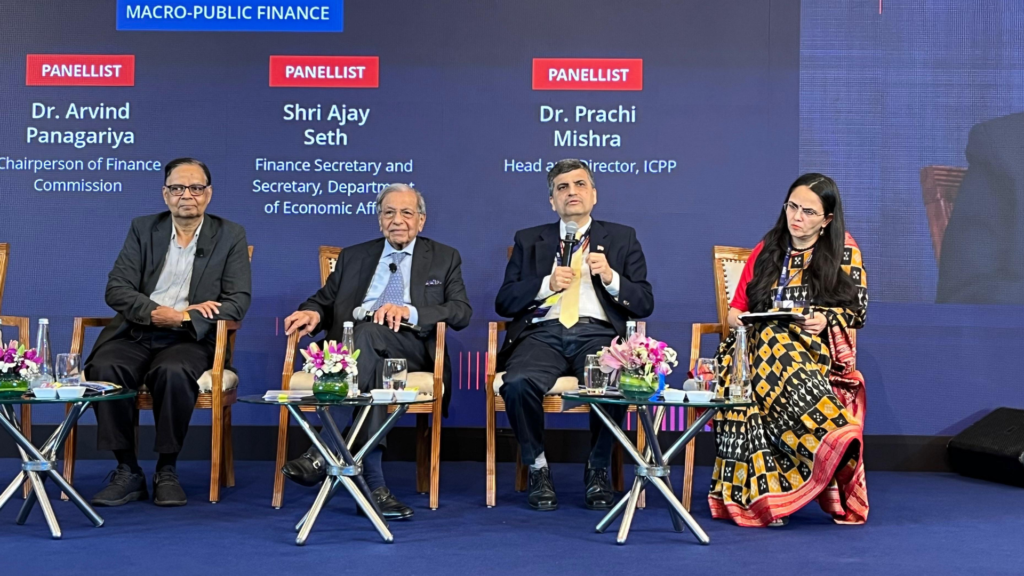
Over the course of two days, the conference featured high-level sessions aimed at generating actionable insights and collaborative strategies for strengthening India’s growth and governance frameworks. It was graced by leading government policymakers, regulators, economists and business leaders, including NK Singh, Chairman of the 15th Finance Commission and former Member of Rajya Sabha, Dr Arvind Panagariya, Chairman of the 16th Finance Commission; Ajay Seth, Finance Secretary and Secretary, Department of Economic Affairs, Dr V Anantha Nageswaran, Chief Economic Advisor, Government of India; Suman Bery, Vice Chairman, Niti Aayog; Atul Tiwari, Secretary, Ministry of Skill Development and Entrepreneurship and Justice V. Ramasubramanian, former Judge of the Supreme Court of India, amongst others.
The first panel discussion on Macro-Public Finance featured esteemed dignitaries, including Shri NK Singh, Chairman of the 15th Finance Commission and former Member of Parliament Rajya Sabha, as the moderator, and Dr Arvind Panagariya, Chairman of the 16th Finance Commission, Shri Ajay Seth, Finance Secretary and Dr. Prachi Mishra, Director and Head of ICPP, Ashoka University, as the panellists.
While setting the context, Professor Prachi Mishra highlighted that the world is witnessing a shift towards a new global trading order with significantly higher tariffs, particularly in the United States. She further emphasised the possible impacts of high tariffs on the global economy, calling it a time of heightened uncertainty. Speaking about the Indian economy, Professor Prachi Mishra highlighted that while significant structural reforms have been undertaken over the past decade, the economy is currently experiencing a cyclical slowdown, with challenges persisting in areas such as manufacturing growth, private investment, and fiscal consolidation.
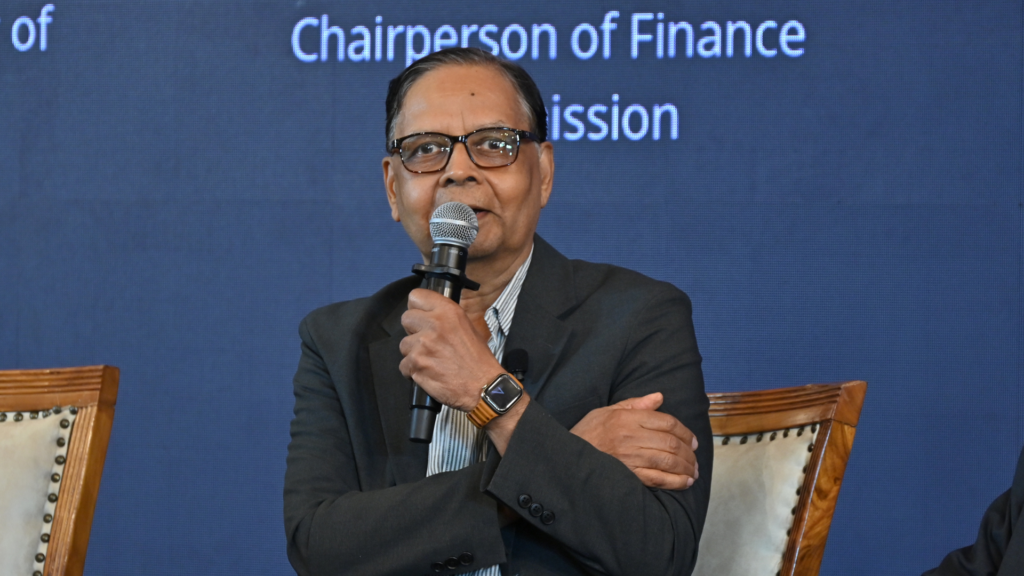
Discussing in detail about India’s current economic scenario and the global uncertainty, Dr Arvind Panagariya, Chairman of the 16th Finance Commission, reiterated, “Macroeconomists are often seen as pessimists, but I’m optimistic. Looking at the short run, we experienced a sharp dip during the COVID crisis with a negative GDP growth of about -5.6%. However, we came out of it remarkably well, with strong recoveries in subsequent years, growing 9.7% in 2021-22 and 7.6% in 2022-23. 23-24, we grew 9.2 per cent, in 2023-24, we grew by 9.2%, and the latest advance estimate for 2024-25 stands at 6.4%. All things considered, that’s indeed a remarkable recovery.“
The discussions on Day 1 laid a strong foundation for identifying actionable pathways to drive India’s growth and regulatory modernisation over the coming decade. It also reflected the commitment with which ICPP was established – to create a research environment where experts across domains will help find scalable solutions to pressing and complex policy challenges in areas such as economic development, labour and employment, healthcare, gender and fiscal policy, etc. The sessions on Day 2 were dedicated to employment and labour, agriculture and the rural economy, and the role of developed states in India’s broader development journey.
Suman Bery, Vice Chairman of NITI Aayog, in his keynote address on Day 2, emphasised India’s long-term vision of becoming a developed, high-income society by 2047. He discussed the need for sustained and accelerated growth, focusing on the importance of labour productivity, investment, and structural reforms to boost the economy. “Over the last three decades, India has achieved a consistent annual growth rate of 6.5 per cent, and I think it’s an impressive achievement. It showcases both institutional agility and a certain institutional maturity in India,” he said.
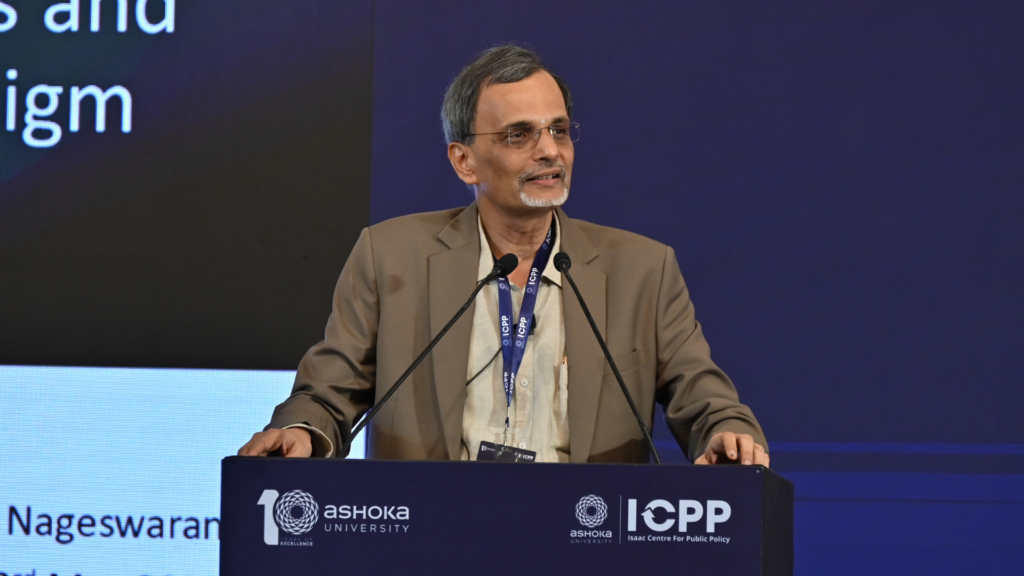
The session on Developed States for a Developed India saw eminent policymakers and business leaders including Shri Ashish Dhawan, Founding Chairperson, Board of Trustees, Ashoka University as the moderator; and Jayesh Ranjan, Special Chief Secretary, Telangana; Seema Bansal Vice-Chairperson, Punjab Development Commission; Radha Raturi, Former Chief Secretary, Uttarakhand, and Chief Information Commissioner, Uttarakhand as key panelists.
The lack of skills amongst the current workforce was one of the important issues addressed by the session featuring Shri Atul Tiwari, Secretary, Ministry of Skill Development and Entrepreneurship, Sanjay Chadha, Director, Public Policy, India & South Asia, Uber India, and Dr Kanika Mahajan, Associate Professor of Economics, Ashoka University.
The conclave concluded with a Special Address by Dr. V. Anantha Nageswaran, Chief Economic Advisor to the Government of India. Dr. Nageswaran highlighted the need for India to maintain macroeconomic stability while pursuing innovation-led, inclusive growth strategies. He stressed that targeted investments in human capital, technology, and infrastructure, along with continued structural reforms. “India’s economy is in good shape despite a challenging global environment. While the final number for FY25 will be available in May, current indicators suggest we are progressing well.”
In his address, Dr V Anantha Nageswaran also highlighted top priority areas which include energy affordability and energy transition; employment generation and artificial intelligence; share of income accruing to capital and labour owners, education & skilling, rise of manufacturing and SME, food security and private sector capital formation.
The Isaac Centre for Public Policy (ICPP) at Ashoka University was established through a grant from the Ajit Isaac Foundation (AIF), a philanthropic organisation created by the Founder & Chairman of Quess Corp Ltd., Ajit Isaac and his wife, Sarah Isaac. The centre works and collaborates with leading public, private and non-profit sector stakeholders to identify research gaps linked with policy making and implementation.
Study at Ashoka








